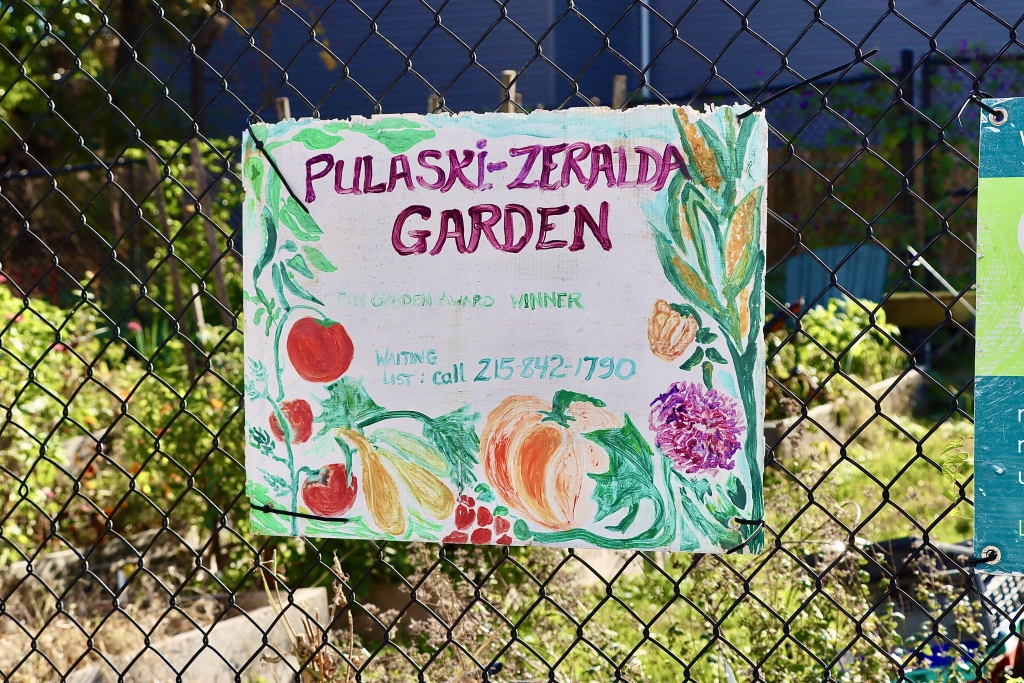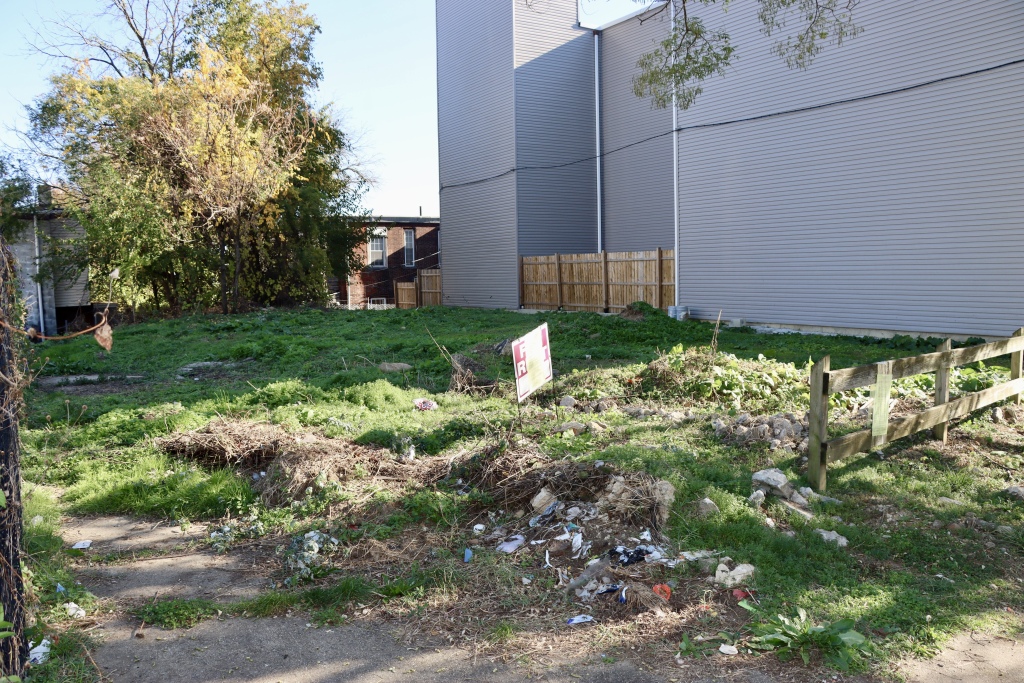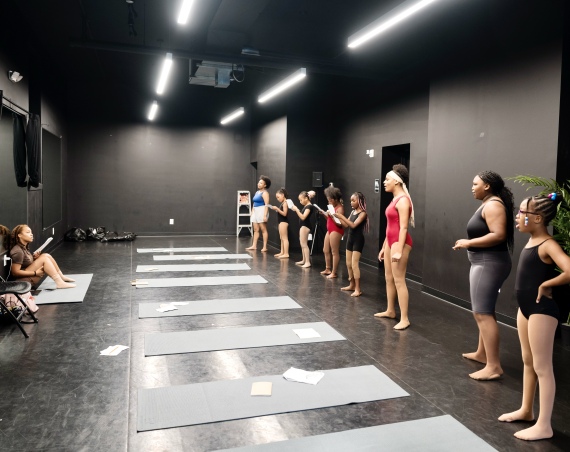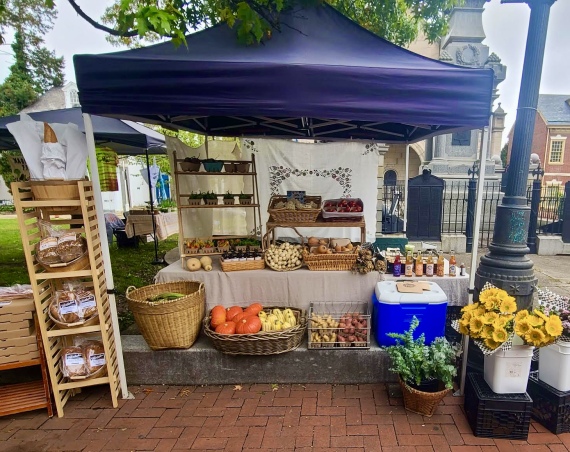Developers Change Course, Opt to Sell Land to Community: ‘We sincerely apologize if there was any confusion,’ says managing partner, as Pulaski-Zeralda Garden’s future is secured.

At the intersection of Pulaski Avenue and Zeralda Street, you can find a thriving community garden where you might spot tomatoes or peppers growing. The Pulaski-Zeralda Garden has stood on that corner for more than three decades, serving as a gathering place for community members to come together and cultivate plants and relationships. However, a potential development loomed, risking the garden’s future. In response, caretakers and neighbors of the garden spoke out to protect the valuable community resource–and, in the end, were victorious.
On September 19th, members of the community and garden stewards gathered online for a meeting regarding the plot of land located at 4535 Pulaski Avenue. The meeting was hosted by Faith Community Development Corporation (Faith CDC) and was a registered community organization (RCO) meeting. The meeting aimed to discuss the proposed plan, which sought various variances for the property. Most notable was the eight-unit variance for the plot of land zoned for an RTA-1, typically intended for no more than two families. Darryl Williams, the owner, and his team, including his lawyer Alex Goldberg, who led the presentation, presented the plan and received feedback from the community.

From the meeting, it seemed that there were two primary concerns: the communication between the developer’s team and the surrounding community and the height of the proposed building.
To appeal the original refusal of the eight-unit property from the Zoning Board of Adjustments (ZBA), Williams’ team obtained signatures of support from the surrounding community. While he received 91 signatures, some attendees spoke up, saying the project being considered at the hearing differed greatly from what they said they were supporting.
Some attendees reported that certain supporters were allegedly given misleading information regarding the details of this project. Some were told that it would be a single-family home, others were told there would be parking provided for the tenants, and others were told they would receive personal parking permits for their vehicles if the building was approved.
Williams refuted these claims during the meeting, and managing partner Kisha Walker told the Germantown Info Hub (GIH) they were “very transparent” about what would be built there. In fact, she says their experience was the opposite, saying, “There was excitement about the building, being that it was a minority builder,” and even helping residents look into zoned street parking permits with the Philadelphia Parking Authority (PPA).
Along with communication concerns, representatives of Neighborhood Gardens Trust (NGT), the organization that has owned the garden since 2005, expressed concerns about the developer’s team’s inability to acknowledge an informal offer from them to purchase the lot at fair market value. In the meeting, Goldberg said, “To our knowledge, there’s no offer for fair market value from an informal or from a legal perspective,” after a neighbor noted confusion about the continuation of the RCO meeting when there was an offer on the table.
NGT Executive Director Jennifer Greenberg said, “It was very puzzling why they wouldn’t at least acknowledge that our attorney had been in contact with them.” When the garden’s legal representative, Yvonne Haskins, clarified that she had been conversing with them for several weeks and stated that NGT was still looking to purchase the property, Goldberg declared miscommunication and said, “We are happy to have a conversation.”
The second biggest concern, the structure’s height, also raised much discussion because it would block sunlight to the garden. Nothing currently sits at the property. However, no matter the structure built, the potential for shade could affect crops growing in the garden. Constructing a four-story building would significantly impact the green space.
Williams’ team prepared a sun study during the summer solstice to show what effect the project would have on the garden. According to the sun study rendering, the garden would be most affected at 11 a.m., with almost half of the lot shaded, 1 p.m. shading practically a quarter of the lot, and 3 p.m. shading nearly none.
Tracy Savage, a garden steward, went on record to raise an important question: the summer solstice is the sunniest day of the year, so what about the rest of the year? A clear response wasn’t provided, but Goldberg did say he would get together with Williams to see what they could offer garden representatives to calm some of their reservations.
Altogether, the meeting was a cycle of similar questions and concerns centered around parking, communication, garden impact, increased density, (lack of) community benefits, and other topics, with an overwhelming sense that the majority attending the meeting disagreed with the project.
Greenberg says they had yet to receive a final count of the votes taken at the meeting, as they were still being counted when the developer asked for a continuance from the ZBA.
Due to the continuance requested by Williams’ team, the ZBA meeting, scheduled for the next week on September 26 at 2 p.m. via Zoom, was canceled. After that, GIH spoke with garden stewards, asking about thoughts and feelings as things remained unclear.
Savage spoke with GIH after the meeting, saying that the building built at Pulaski and Berkley (on the other side of the 4535 lot) already blocks the sun from that angle enough. She says, “It doesn’t cross over, but it’s to the fence of our garden. So if you build another building that’s going to be four stories high, it’s definitely going to shade our garden.” Savage, like other attendees, feels that a rendering for one day of the year shouldn’t serve as a model for potential long-term impact.
Dee Dee Risher, a garden steward, says that a potential project would severely impact the garden’s services. “We share our produce with some Germantown food cupboards,” Risher shares. “And we put food in the community fridge, so that will be much less.” She says this is just the physical and personal impact, pointing to other issues.
She continues: “And I think it’s just there is a psychological level where you want to believe the rhetoric our politicians put out, that community voices matter, that quality of life matters, and all of this takes consideration over economic gain… it just feels like there’s no advocacy on the part of the people who have the power to represent our area in the halls of power. It’s just very disheartening… and it’s hard to inspire people.”
The garden holds a special psychological significance for Savage, who considers it a “healing space,” both now and five years ago when she was going through a difficult time. She credits her mother for convincing her to take up gardening. The garden also has generational value for those like Savage, whose mother and grandmother also gardened there. Risher’s family, including her children, have also worked in the garden. Savage said the possibility of seeing this space affected would “put a dimmer [on her] light.”
Savage shares that the garden was unaware when the lot at 4535 was sold and that they only found out when the WIlliams appeal process to acquire variances began. With this unfamiliarity, she says the garden had started to think about ways that 4535 could become an expansion of the garden, opening it for broader use for the community.
She said, “We wanted to grow a beautiful green space for the neighborhood, and we wanted to add more [grow] boxes. We wanted to make it like an orchard, where we put fruit trees all around. And maybe build a little stage where we could have classes. Or maybe if a neighbor wanted to barbecue, they could get [our permission]. However it’s done, we are still planning things with that, so we’re not quite sure.”
While the horizon seemed cloudy before, it should be much clearer now. When answering questions about the future of the 4535 lot, managing partner Walker revealed the new plans. She said, “We have decided it is in the best interest to work with the community gardeners and community to sell the parcel directly to them.”
Walker said they have been in consistent contact with the garden since the September 19 meeting and have reached a mutual agreement, comprehending the intentions to expand the garden.
When asked if there were any sentiments they wanted to lend around neighbors who felt misinformed during the process, Walker said, “We sincerely apologize if there was any confusion during our outreach with the residents as it was greatly positive during our individual dialogues with everyone. We understand how sensitive this can be and have been continuously open to working with the community on this to the point of withdrawing our zoning application and selling the parcel to them.”
When asked about this new update, Risher said, “It was thrilling to share with our gardeners and neighbors we stopped building plans that would have so negatively affected our garden’s viability. But it was completely awesome to share that Neighborhood Garden Trust was able to purchase that lot for us. This expands green space for the community and expands the garden. As over-development threatens to increase neighborhood density, it is so gratifying to have a win because people showed up and spoke out.”
NGT’s Greenberg stated that they aim to finalize the purchase of the lot in December and are excited about the expansion of the garden. Although they are actively looking to buy the property, they still require support. NGT, a Philadelphia-based land trust, dedicated to preserving community gardens, is currently seeking donations through its Gaining Ground campaign. By having resources on reserve, they can quickly move forward when opportunities like this arise.
Risher expressed contrasting emotions regarding her past sentiments about the seeming hopelessness of these processes. She shared, “It marked a wonderful instance of collective empowerment. From my perspective, such victories have been scarce in this region of southwest Germantown and Nicetown. It’s truly thrilling.”



